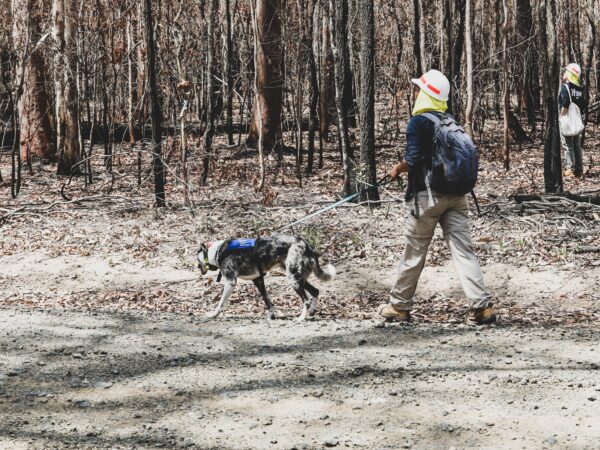Teaching children to care for animals can have a significant impact on their development. Animal education is essential because it helps children understand the value of compassion and responsibility. In this post, we will explore the importance of animal education, the benefits it has for children, and how you can implement it in your child’s life.
Children who learn how to care for animals are more likely to develop a sense of empathy and kindness towards other living things. They learn how to communicate effectively and develop a sense of responsibility as they take care of a pet. Moreover, animal education can teach children how to understand and respect boundaries, leading to better relationships with both animals and humans.
1. Introduction To The Importance of Animal Education
Importance of Animal education is for many reasons, including teaching compassion and responsibility. Compassion toward animals is not only a moral and ethical issue, but it also has a positive impact on society as a whole. Children who learn to treat animals with kindness and respect are more likely to grow up to be empathetic and compassionate individuals, which can lead to a more harmonious and peaceful society.
Teaching animal education also helps to instill a sense of responsibility in children. By learning about the basic needs of animals, children can better understand the importance of providing proper care for their own pets. It also teaches them about the consequences of neglect or mistreatment of animals, which can lead to serious health and behavioral issues.
Overall, animal education is important for promoting empathy, compassion, and responsibility among children. It helps to create a more harmonious and peaceful society, and promotes a greater understanding and appreciation of the natural world.
2. The Benefits of Teaching compassion
Teaching compassion and responsibility towards animals is an important aspect of education. It not only benefits the animals themselves, but it also has a positive impact on the children who learn these values.
Compassion towards animals encourages children to develop empathy, which is a crucial skill in life. When children learn to care for and understand the needs of animals, they develop a sense of responsibility that extends beyond the animal kingdom.
They learn to be kinder, more considerate, and more nurturing individuals.
Furthermore, teaching children to be responsible for animals helps them develop a sense of accountability. Caring for a pet, for example, requires a certain level of commitment and consistency, which can translate into other areas of their lives.
This can lead to the development of good habits, such as regular exercise, healthy eating, and consistent routines that can benefit children throughout their lives.
3. How It can Prevent Cruelty and Abuse
Animal education is vital in preventing cruelty and abuse against animals. It provides individuals with the knowledge and understanding of appropriate animal care, treatment, and handling.
The more people understand about animal welfare, the less likely they are to engage in abusive or neglectful behavior towards animals.
Animal education programs can teach individuals how to recognize signs of animal abuse or neglect, how to report it, and how to care for animals properly. By promoting kindness and compassion towards animals, these programs teach responsibility and empathy.
It provides individuals with the knowledge and understanding needed to make informed decisions about animal care and treatment, and it helps prevent cruelty and abuse against animals. By investing in animal education programs, we can create a brighter future for animals and humans alike.
4. Animal Abuse and Other Forms of Violence
It is a well-known fact amongst many animal welfare organizations that there is a strong link between animal abuse and other forms of violence. In fact, research has shown that individuals who abuse animals are often more likely to engage in other violent behaviors towards people.
This link is not exclusive to any one particular age group or gender. In fact, it has been found that children who engage in animal abuse are more likely to engage in other forms of violence such as bullying and physical aggression towards their peers.
This is why animal education is so important. By teaching children and adults the importance of treating animals with kindness and respect, we can help break this cycle of violence towards animals and people.
So, if we want to prevent animal abuse and other forms of violence, we need to start by educating ourselves and those around us about the importance of treating animals with kindness and respect.
5. Examples
Animal education programs and initiatives are becoming increasingly popular worldwide. These programs aim to teach individuals about the importance of animal welfare, conservation, and sustainability, and how to become responsible pet owners.
Here are some examples of animal education programs and initiatives that are making a difference:
1. The Jane Goodall Institute’s Roots & Shoots Program – This program empowers young people to take action on environmental and animal welfare issues in their communities. The program operates in over 50 countries and has reached over 150,000 young people.
2. World Wildlife Fund’s Wild Classroom Program – This program provides educational resources and activities for teachers and students to learn about conservation and the environment. The program includes lesson plans, games, and interactive activities.
3. The American Society for the Prevention of Cruelty to Animals (ASPCA) Humane Education Program – This program provides resources and training for educators to teach children about animal welfare and responsible pet ownership. The program also offers animal-assisted therapy programs to help children develop empathy and compassion.
4. The Animal Welfare Institute’s Humane Education Program – This program provides educational resources and support for teachers, students, and parents to learn about animal welfare and conservation. The program includes lesson plans, workshops, and outreach programs.
These initiatives and programs are just some examples of how animal education is making a positive impact on individuals and communities. By teaching compassion and responsibility towards animals, we are creating a better future for both animals and humans alike.
6. How animal education can improve our relationship with the natural world
Animal education can play a vital role in improving our relationship with the natural world. By understanding the behavior and needs of animals, we can better appreciate them and develop a sense of empathy towards them. This empathy can lead to more responsible behavior towards animals, their habitats, and the environment as a whole.
A lack of education about animals can have negative consequences for both humans and animals. For example, many species are endangered due to habitat destruction, over-hunting, and climate change. Without understanding the consequences of our actions, .
Overall, animal education is a key component in improving our relationship with the natural world. By fostering empathy, responsible behavior, and a greater understanding of the interconnectedness of all living things, we can work towards a more sustainable and compassionate future for both humans and animals.
7. The role of parents and society in animal education
Parents, teachers, and society as a whole play a significant role in animal education. Children look up to their parents and teachers as role models and mimic their behavior. Therefore, it is essential for parents and teachers to instill a sense of compassion and responsibility towards animals in children from an early age. Parents can start by teaching their children to be kind and gentle to animals.
They can also teach them the importance of providing food, water, and shelter to animals in need. Parents should also encourage their children to volunteer at animal shelters or participate in community programs that help animals. This will help children develop empathy and compassion towards animals
Society as a whole can also contribute to the importance of animal education. It is to create awareness about animal rights and the importance of treating animals with kindness and respect. Governments can initiate programs that promote animal welfare and conservation. Organizations can also organize campaigns and events that raise awareness about animal issues.
In conclusion, The importance animal education is for teaching compassion and responsibility towards animals. Parents, teachers, and society need to work together to ensure that children are educated about animals and their well-being. By doing so, we can create a future generation that values and respects all forms of life.











